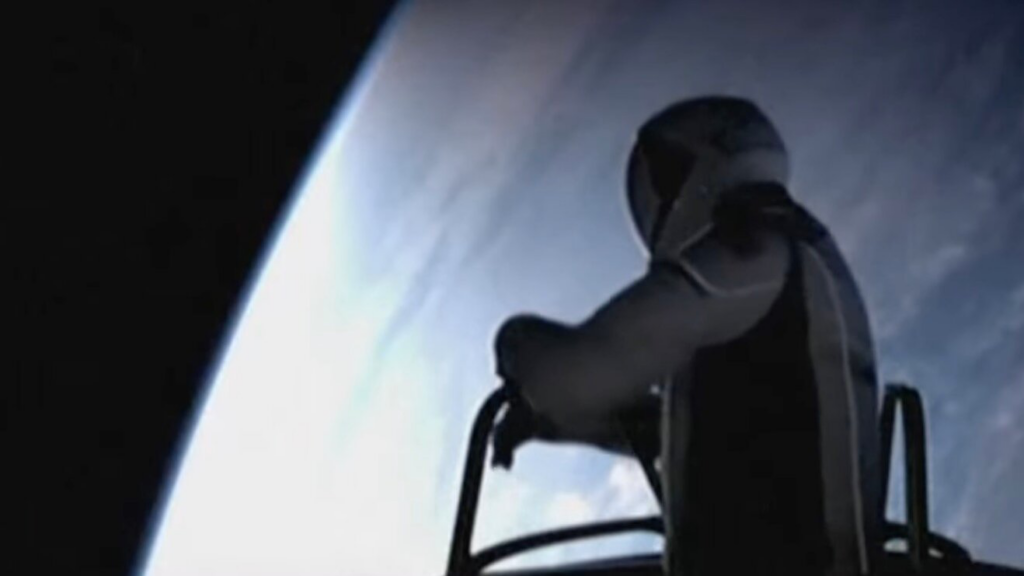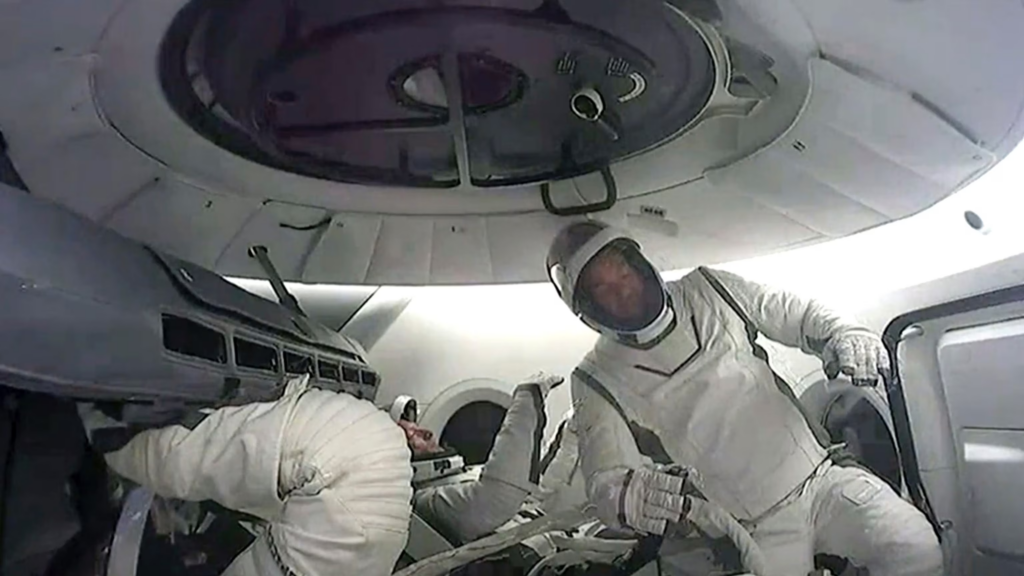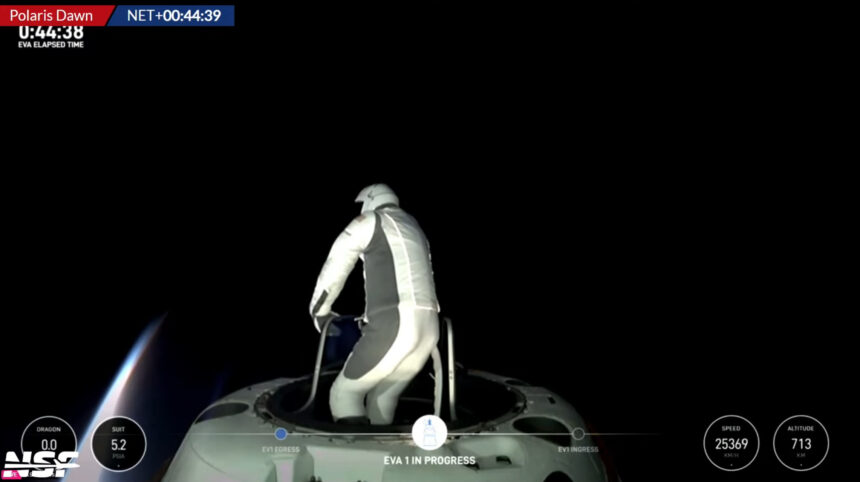In a bold leap for commercial space exploration, a team of four civilians on SpaceX’s Polaris Dawn mission achieved a historic milestone by conducting the first-ever spacewalk by non-government astronauts. This event, which took place live on a SpaceX webcast, saw the crew venture out of their spacecraft into the vastness of space, marking a new era in human spaceflight.
What’s Happening & Why This Matters
The Polaris Dawn mission, led by Jared Isaacman, CEO of Shift4 Payments, included his close friend and ex-U.S. Air Force pilot Scott “Kidd” Poteet, and SpaceX engineers Anna Menon and Sarah Gillis. Their journey started at 5:23 a.m. ET on Tuesday, with the spacewalk commencing at 6:12 a.m. ET. The entire mission is designed to push the boundaries of commercial space travel and set the stage for future private-sector endeavors.
Isaacman and Gillis were the first two crewmembers to exit the Crew Dragon capsule for the spacewalk, or extravehicular activity (EVA), an event considered risky but necessary for advancing the commercial space sector. While outside, they tested new EVA suits that SpaceX developed in just two and a half years. These suits are intended to be more flexible and less costly than traditional space agency models, with the goal of scaling up for future use by large numbers of people in space.

During the spacewalk, the capsule’s hatch opened to the vacuum of space, exposing the crew to an environment only a few have experienced. For approximately 20 minutes, Isaacman and Gillis navigated the space outside their capsule, with Isaacman stepping out first at around 7 a.m. ET. He used a mobility aid called “Skywalker,” a ladder-like device, to explore the void of space. Shortly after, Gillis followed to test the suit’s mobility features.
The mission’s goals extend beyond this spacewalk. The crew will spend several days conducting nearly 40 experiments, including studies on the effects of space adaptation syndrome, a common issue affecting about half of all people who travel to orbit. The crew will also demonstrate the use of SpaceX’s Starlink satellites for in-space communication, an essential component for future missions.
NASA Administrator Bill Nelson congratulated SpaceX and the Polaris Dawn crew for completing the first commercial spacewalk. He emphasized that this achievement represents a huge step forward for the commercial space industry and aligns with NASA’s vision of establishing a robust U.S. space economy.

TF Summary: What’s Next
The Polaris Dawn crew will remain in orbit for a few more days, continuing their research and experiments. These include exploring the biological challenges of space travel and testing new technologies. The crew anticipates returning to Earth over the weekend, marking the end of a mission that could redefine the future of commercial space travel. As the mission progresses, all eyes are on SpaceX and its ambitious plans for making space more accessible to private entities and individuals in the years to come.
— Text-to-Speech (TTS) provided by gspeech


